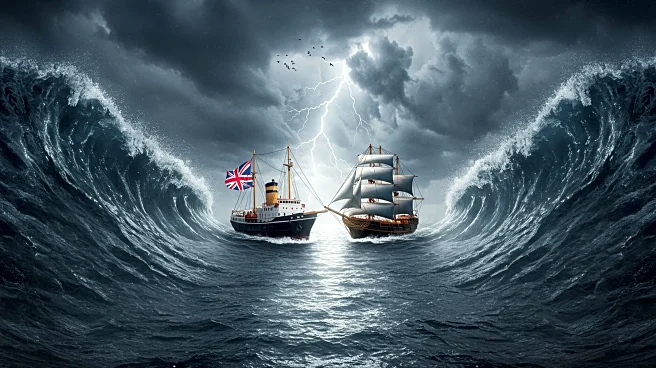What is the story about?
What's Happening?
The United States and China engaged in a heated exchange at the United Nations regarding the Panama Canal, with the U.S. expressing concerns over China's influence on the waterway. The U.S. warned that Beijing's involvement could pose threats to global trade and security, while China accused the U.S. of using these claims as a pretext to take control of the canal. Panama's President José Raúl Mulino emphasized the canal's neutrality and Panama's ownership during a U.N. Security Council meeting focused on maritime security challenges. The U.S. has been pressuring China to sell its interests in the canal to a U.S. consortium, which has led to protests in Panama.
Why It's Important?
The Panama Canal is a critical global trade route, linking the Atlantic and Pacific Oceans. The U.S. concerns about China's influence reflect broader geopolitical tensions and the strategic importance of the canal in international commerce. The canal's management and control are vital for maintaining global shipping efficiency and security. The U.S. sees China's involvement as a potential threat not only to Panama and the U.S. but to global trade stability. This clash highlights the ongoing power struggle between the U.S. and China over key international infrastructure and the implications for global maritime security.
What's Next?
The situation may lead to increased diplomatic efforts by the U.S. to secure its interests in the Panama Canal. Panama's rejection of a takeover suggests potential resistance to U.S. pressure, which could result in further negotiations or international interventions. The U.S. might continue to seek alliances with other countries to counter China's influence in strategic regions. The ongoing protests in Panama indicate domestic opposition to foreign involvement, which could affect future policy decisions regarding the canal's management.
















